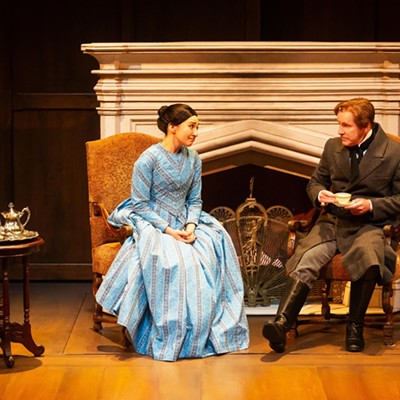Support Us
Houston's independent source of
local news and culture
account
- Welcome,
Insider - Login
- My Account
- My Newsletters
- Contribute
- Contact Us
- Sign out
How Buffalo Soldiers Helped Win the Spanish-American War...and Saved Teddy Roosevelt
Bob Ruggiero September 1, 2015 7:00AM
[
{
"name": "Related Stories / Support Us Combo",
"component": "11591218",
"insertPoint": "4",
"requiredCountToDisplay": "4"
},{
"name": "Air - Billboard - Inline Content",
"component": "11591214",
"insertPoint": "2/3",
"requiredCountToDisplay": "7"
},{
"name": "R1 - Beta - Mobile Only",
"component": "12287027",
"insertPoint": "8",
"requiredCountToDisplay": "8"
},{
"name": "Air - MediumRectangle - Inline Content - Mobile Display Size 2",
"component": "11591215",
"insertPoint": "12",
"requiredCountToDisplay": "12"
},{
"name": "Air - MediumRectangle - Inline Content - Mobile Display Size 2",
"component": "11591215",
"insertPoint": "4th",
"startingPoint": "16",
"requiredCountToDisplay": "12"
}
,{
"name": "RevContent - In Article",
"component": "12527128",
"insertPoint": "3/5",
"requiredCountToDisplay": "5"
}
]
The Roughest Riders: The Untold Story of the Black Soldiers in the Spanish-American War
By Jerome Tuccille
304 pp.
$26.95
Chicago Review Press
It is one of the most familiar stories drilled into the heads of schoolchildren around the country. How Teddy Roosevelt, riding high on horseback and in the front, led his ragtag band of “Rough Riders” as they charged up San Juan Hill routing a Spanish army and winning a decisive battle in wresting Cuba from their control.
Upon returning to the United States, the flamboyant Roosevelt – who always made for good newspaper copy – basked in a hero’s welcome. And the Rough Rider legend helped catapult him to the White House as Vice President and then, after the assassination of William McKinley, President.
But as many of us former schoolchildren learn in adulthood, many of the cherished stories of American history didn’t exactly unfold as told. In fact, Roosevelt and his Rough Riders made it to the top of San Juan Hill – as well as the smaller Kettle Hill in a previous skirmish – when the bulk of the fighting was over.
More important, they arrived there both times after regiments of all-black soldiers, who saw most of the action. And in fact, it was these soldiers who saved the Rough Riders from annihilation on both Hill battles as well as at the Battle of Las Guasimas.
The contributions of these “Buffalo Soldiers” (the moniker given them by Native Americans for their dark skin and tight, curly hair) and subsequent shameful treatment by both Roosevelt and history are the subject of Tuccille’s tome. It aims to set the record straight on the thousands of men who fought and died for American interests, while not being able to enjoy many of the same freedoms back home as the people they were liberating abroad.
Originally sent in great numbers to Cuba by U.S. military commanders who believed that “the Negro is better able to withstand the Cuban climate than the white man,” Tuccille writes, the two cavalry and two infantry regiments of Buffalo Soldiers were treated as second class soldiers from the get-go.
They were allotted the worst transport ships from the United States to Cuba, and kept in the lowest decks. One ship offered only a single toilet for 1,200 black soldiers. And while their white compatriots were free to leave their ships prior to sailing to visit a nearby town to eat, drink, gamble and whore, blacks were confined to their vessels until they set sail.
Using firsthand accounts from soldiers and commanders as well as historical documents and insight, Tuccille’s lively writing puts the reader right in the heart of the Cuban battlefields. And with each successive fight, the tenacity, bravery and energy of the Buffalo Soldiers are apparent.
However, in a puzzling about-face after he returned home to a hero's welcome, Teddy Roosevelt changed his outlook. After initially praising the contributions of the Buffalo Soldiers – even above similar white units – he later took a different track, with statements like “Negro troops were shirkers in their duties and would only go so far as they were led by white officers.”
Tuccille theorizes that the ego-driven Roosevelt didn’t want him and his Rough Riders to share any credit, or Roosevelt was feeling political pressure on racial matters to downplay the Buffalo's contributions. The Riders themselves were a colorful (but not official) military unit, a volunteer group with a curious mixture of gunfighters, outlaws, renegade soldiers, trappers and the occasional Ivy Leaguer looking for adventure.
The majority of the war’s press entourage – handpicked by Roosevelt – mostly followed him and filed often hagiographic stories — sometimes making it seem as if they single-handedly won the war. The Buffalo Soldiers, in turn, had just one journalist tagging along.
After the Spanish-American war, the Buffalo Soldiers would see more action in Puerto Rico and the Philippines, in Mexico on the hunt for Pancho Villa, and in World Wars I and II, until President Truman integrated U.S. troops in 1948.
A most unfortunate incident occurred in 1906 in Brownsville, Texas, as tensions rose between Buffalo Soldiers stationed there and local law enforcement and citizens. It resulted in large-scale fighting and property damage.
Afterward, 167 black soldiers were all dishonorably discharged with no pensions or benefits, which Tuccille notes was a shameful occurrence. And by the time they were officially exonerated in the early ‘70s by the U.S. government, only one was left alive – and given a check for $25,000.
While the story of Teddy Roosevelt and San Juan Hill is not likely to disappear from the junior high American History curriculum anytime soon, historians and the general public are increasingly more aware that there are other sides and aspects to our cherished textbook tales. The Roughest Riders certainly gives credit to those who have long deserved it.
KEEP THE HOUSTON PRESS FREE...
Since we started the Houston Press, it has been defined as the free, independent voice of Houston, and we'd like to keep it that way. With local media under siege, it's more important than ever for us to rally support behind funding our local journalism. You can help by participating in our "I Support" program, allowing us to keep offering readers access to our incisive coverage of local news, food and culture with no paywalls.
Bob Ruggiero has been writing about music, books, visual arts and entertainment for the Houston Press since 1997, with an emphasis on classic rock. He used to have an incredible and luxurious mullet in college as well. He is the author of the band biography Slippin’ Out of Darkness: The Story of WAR.
Contact:
Bob Ruggiero
Trending Arts & Culture
- Bring a Friend With You to See A.D. Players' Heartwarming Production of Driving Miss Daisy.
- Best Bets: Latin Wave, California Gold and Philly Soul
- Houston Grand Opera's The Sound of Music Begins This Weekend. Yodelayheehoo!
-
Sponsored Content From: [%sponsoredBy%]
[%title%]

Don't Miss Out
SIGN UP for the latest
arts & culture
news, free stuff and more!
Become a member to support the independent voice of Houston
and help keep the future of the Houston Press FREE
Use of this website constitutes acceptance of our
terms of use,
our cookies policy, and our
privacy policy
The Houston Press may earn a portion of sales from products & services purchased through links on our site from our
affiliate partners.
©2024
Houston Press, LP. All rights reserved.





